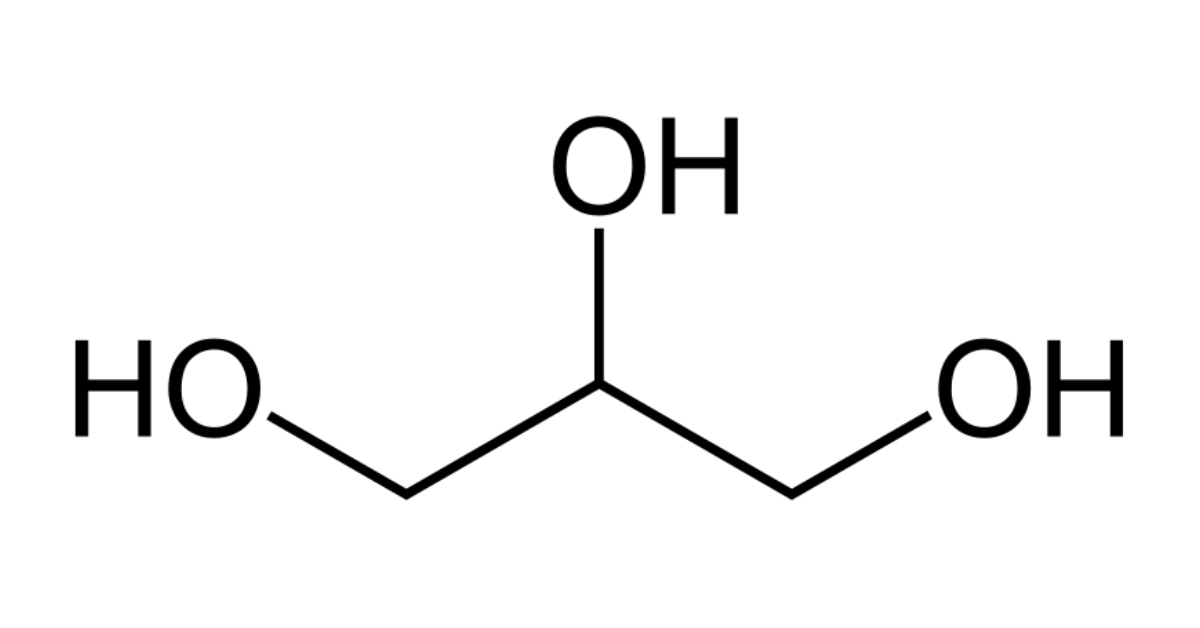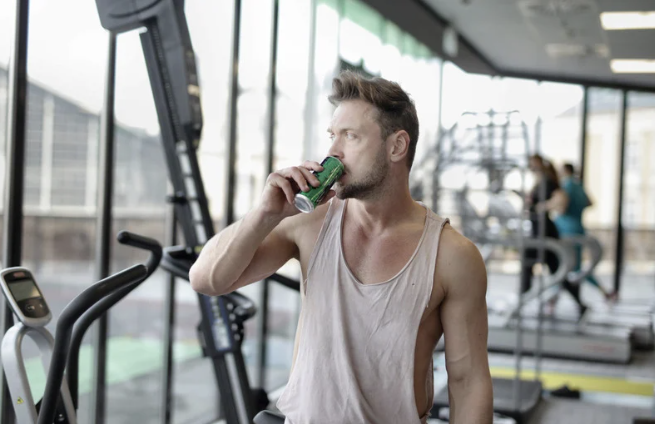
Bodybuilding is a sport that requires not just intense workouts but also a strategic approach to nutrition and supplementation.
One supplement that's gaining popularity in the bodybuilding community is glycerol.
Let's dive into what glycerol is, its benefits, and how to use it for bodybuilding.
For bodybuilding purposes, glycerol dosage can vary depending on the form used.
Standard glycerol monostearate is typically dosed at 1-2 grams per kilogram of body weight, while more concentrated forms like GlycerSize (65% glycerol powder) and HydroPrime (90% glycerol powder) are often recommended at 1-2 grams pre-workout.

Glycerol is a naturally occurring compound used in the body for various metabolic processes.
It's also a popular ingredient in sports supplements due to its potential benefits for hydration and performance.
Glycerol plays a key role in bodybuilding because it enhances hydration.
Proper hydration is crucial for optimal muscle function, recovery, and growth.
Glycerol can help maintain hydration during intense workouts, potentially improving performance and results.
Glycerol works by increasing the total amount of water in the body, a state known as hyperhydration.
This can delay dehydration during workouts, allowing longer and more intense training sessions.
The recommended dosage of glycerol for bodybuilding can vary based on several factors, including the athlete's size, goals, and training intensity.
However, a common starting dose is 2-5g taken 1-2 times per day. Some athletes may find that a higher dose of up to 6g per day is more effective.
However, here are some general guidelines:
One way to determine the appropriate dosage of glycerol is based on body weight.
For instance, taking 1 gram of glycerol per kilogram of body weight with an additional 1.5 liters of fluid taken 60 to 120 minutes before competition is recommended.
This is supported by a study published in the Journal of the American Dietetic Association.
Glycerol is generally considered safe when administered orally in doses of less than 5 grams per kilogram of body weight.
This is supported by a study published in the National Library of Medicine.
The effects of glycerol supplementation can vary between individuals, and it's important to adjust the dosage based on individual needs and tolerance.
It is a good approach to start with a lower dosage and gradually increase it as your body adjusts.
It's crucial to stay hydrated when supplementing with glycerol, as it works by increasing the total amount of water in the body.
Consuming adequate fluids along with your glycerol dosage can help maximize its benefits and reduce the risk of side effects.
As always, if you have any pre-existing health conditions or are taking any medications, it's recommended to consult with a healthcare professional before starting any new supplement regimen.
Glycerol is available in various forms with unique characteristics and recommended dosages.
Here, we will discuss the dosages for different forms of glycerol, including GlycerSize, HydroPrime, and regular glycerol.
GlycerSize is a patented form of glycerol that is designed to enhance hydration and increase the volume of blood, plasma, and muscle cells for improved pump, endurance, and overall performance.
The recommended dosage for GlycerSize is typically around 1-2 grams per serving, taken 30 minutes before a workout.
However, the dosage may vary depending on the individual's body weight and hydration levels.
HydroPrime is another patented form of glycerol that promises superior stability, potency, and solubility compared to other glycerol products.
The recommended dosage for HydroPrime is similar to GlycerSize, with 1-2 grams per serving suggested about 30 minutes before exercise.
Again, individual factors such as body weight and hydration levels may affect the optimal dosage.
Regular glycerol, or glycerol monostearate, is a common form of glycerol used in many sports supplements.
The recommended dosage for regular glycerol is a bit higher than its patented counterparts, with 1.2 grams per kilogram of body weight suggested for optimal hyperhydration.
This dosage should be taken about 60 minutes before exercise, along with plenty of water to facilitate its hydrating effects.

Glycerol should be taken with plenty of water to maximize its hydrating effects.
It can be added to a pre-workout beverage or taken in capsule form.
Glycerol can also be stacked with supplements like sodium, creatine, and betaine for enhanced results.
Glycerol offers several potential benefits for bodybuilders, including enhanced hydration, improved endurance, and better muscle pumps.
By helping to maintain hydration status during workouts, glycerol can support optimal muscle function and performance.
See: What Gives the Pump in a Pre-Workout?
Glycerol is a supplement that has been shown to have a significant impact on hydration, which can lead to improved endurance during workouts.
This is due to glycerol's unique ability to draw and lock in water, thereby increasing total body water and enhancing fluid balance.
This can be particularly beneficial during long, intense workouts or in hot conditions where dehydration might otherwise impair performance.
This physiological and performance effect of glycerol has been well documented.
In addition to its hydration benefits, some studies, such as this one, have found that glycerol supplementation can increase both aerobic and anaerobic power output.
This means that it can potentially enhance both endurance and strength performance, making it a versatile supplement for different types of exercise.
One of glycerol supplementation's more visually noticeable effects is the enhanced 'muscle pump' during workouts.
Glycerol can increase blood and muscle tissue fluid volume, leading to better muscle pumps.
This not only improves the appearance of muscles during and immediately after a workout, but may also enhance nutrient delivery and waste product removal from the muscles, potentially improving performance and recovery.
This benefit of glycerol has been noted by many fitness enthusiasts.
Recommended: Best Pump Supplements
While more research is needed in this area, some studies suggest that glycerol may play a role in fat metabolism.
This could potentially make it a useful supplement for bodybuilders looking to reduce body fat while maintaining muscle mass.
This study discusses using intramuscular triacylglycerol as a substrate source during exercise.
While glycerol is generally safe for most people, some may experience side effects like dizziness, nausea, and bloating.
It's always best to consult a healthcare professional before starting any new supplement regimen.
While glycerol is generally considered safe for most people, it can cause some side effects, particularly when consumed in large amounts.
Here are some potential side effects to be aware of:
Glycerol can cause gastrointestinal issues, including bloating, nausea, vomiting, and diarrhea.
These side effects are more likely to occur if you consume large amounts of glycerol or have a sensitive stomach.
This is supported by a study which found that glycerol can have local irritating effects on the gastrointestinal tract.
Some people may experience headaches and dizziness after consuming glycerol.
This is likely due to the increased fluid volume in the body, which can cause changes in blood pressure.
Due to its hydrating effects, glycerol can cause increased thirst.
This is a normal response to the body's increased need for water.
An interesting study found that glycerol supplementation could have an unwanted effect on body weight.
This is likely due to the water-retention properties of glycerol.
While not common, some side effects may require medical attention.
If you experience any severe or persistent side effects after consuming glycerol, it's important to seek medical advice.
As always, it's important to start with a low dose of glycerol and gradually increase as your body adjusts.
It's also crucial to stay hydrated, as glycerol works by increasing the total amount of water in the body.
If you have any pre-existing health conditions or are taking any medications, it's recommended to consult with a healthcare professional before starting any new supplement regimen.

What is the recommended dosage of glycerol for bodybuilding?
The recommended dosage of glycerol for bodybuilding can vary, but a common starting dose is 2-5g taken 1-2 times per day.
How should I take glycerol for bodybuilding?
Glycerol should be taken with plenty of water to maximize its hydrating effects. It can be added to a pre-workout beverage or taken in capsule form.
What are the benefits of glycerol in bodybuilding?
Glycerol offers several potential benefits for bodybuilders, including enhanced hydration, improved endurance, and better muscle pumps.
Are there any side effects of glycerol?
While glycerol is generally safe for most people, some may experience side effects like dizziness, nausea, and bloating.
Can I stack glycerol with other supplements?
Yes, glycerol can be stacked with supplements like sodium, creatine, and betaine for enhanced results.
Glycerol can be a valuable addition to a bodybuilder's supplement regimen, offering potential benefits in energy production, hydration, muscle pump, and possibly even fat loss.
However, as with any supplement, using glycerol responsibly and by the manufacturer's instructions or professional guidance is essential.
The optimal dosage can vary depending on the specific form of glycerol used and individual factors like body weight and workout intensity.
Always hydrate when using glycerol, as it draws water into the muscles and blood.
Useful Links
 About FitFrek
About FitFrekFitFrek operates as an independent platform, offering comprehensive workouts, programs, routines, guides, and unbiased reviews to accelerate your progress. We pride ourselves on our honesty, delivering straightforward and candid insights. FitFrek does not offer medical advice, diagnosis, or treatment services.